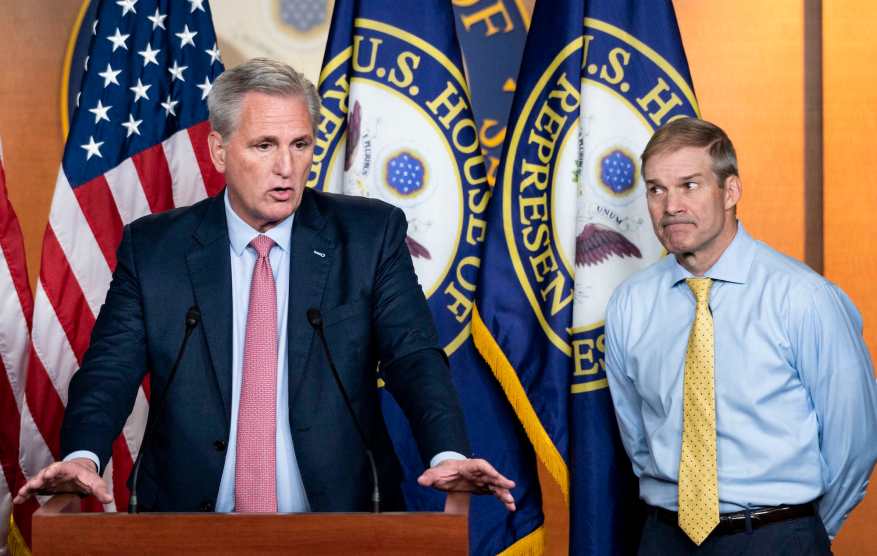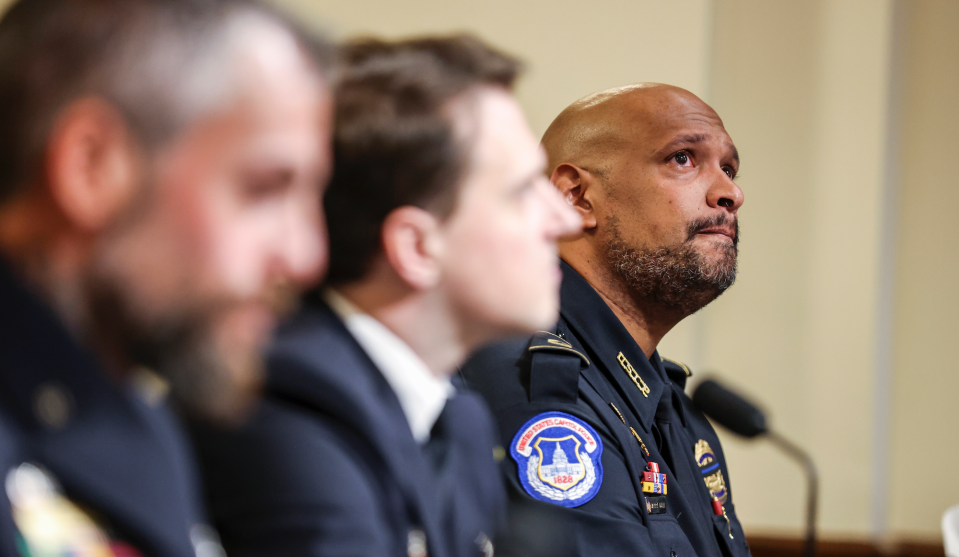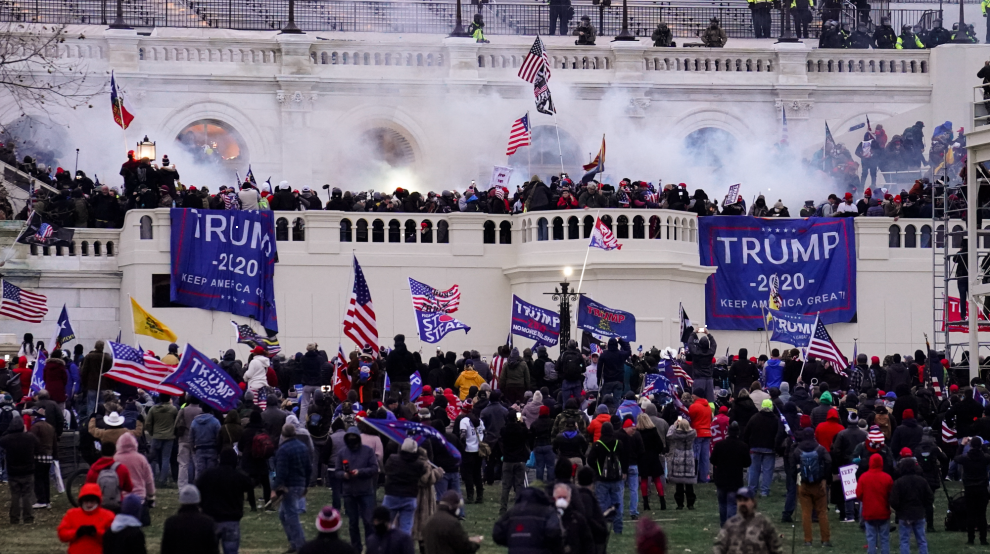
Bill Clark/ZUMA
As Republicans move full steam ahead with their disinformation campaign to completely rewrite the events of January 6, over in the real world, the threat of subpoenas for some of the most high-profile Trump loyalists is mounting.
On Sunday, Rep. Adam Kinzinger, one of only two Republicans on the select committee to investigate the Capitol attack, backed issuing subpoenas for his fellow Republican members, including for Rep. Kevin McCarthy, the House Republican leader who reportedly had an “expletive-laced” phone call with Donald Trump during which the former president refused to call off the hundreds of pro-Trumpers that were storming the Capitol.
“Would you support subpoenas to the Republican leader in the House and to Jim Jordan?” ABC’s Jon Karl asked.
“I would support subpoenas to anybody who could shed light on that,” Kinzinger said. “If that’s the leader, that’s the leader.”
The Illinois congressman also suggested that the number of people wanted for questioning by the committee would be extensive.
Adam Kinzinger, a Republican member of the January 6 committee, says on ABC that he supports subpoenaing Jim Jordan and Kevin McCarthy pic.twitter.com/CjEPoO2Fx3
— Aaron Rupar (@atrupar) August 1, 2021
That list is also now likely to include Rep. Jim Jordan after he appeared to uncomfortably confirm that he too spoke with Trump on January 6 during an appearance on Fox News this week. “I speak with the president all the time,” Jordan said when directly asked if he spoke with Trump on January 6. “I spoke with him on January 6th. I mean I talk with President Trump all the time. And that’s, that’s, I don’t think that’s unusual.”
Later, Jordan equivocated even further. “Uh, I’d have to go, I’d, I, I, I spoke with him that day after, I think after,” the Ohio congressman said. “I don’t know if I spoke with him in the morning or not. I just don’t know.”
Beyond speculation over who may be called for questioning, the other big open issue is how the most wanted Republican members of Congress and Trump allies—and there are a lot of them—will react once subpoenas go out. Judging from their extraordinary obstruction of a special commission to investigate January 6, coupled with their boycott of the first congressional hearing into the riot last week, we’re all but certain to see plenty of theatrical opposition.
So then, what happens if a member of Congress refuses a congressional subpoena? We essentially have no idea.








